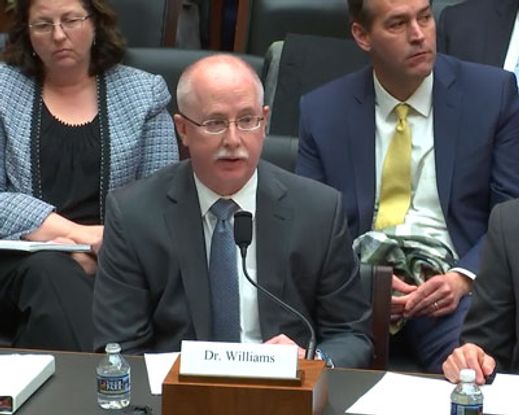Compounding: Protecting Access to the Treatments Our Patients Need
Issue
Federal safeguards regulating compounded treatments are implemented with patient safety in mind. But recent changes to these policies are inadvertently preventing ophthalmologists from getting all the treatments our patients need, when we need them.
Current policy requires physicians to get office-use drugs from outsourcing facilities, which require costly validation/sterility studies on each drug a facility compounds. Because of these requirements, along with strict manufacturing standards, some of these facilities are reluctant to produce low-volume drugs.
"The way the Food and Drug Administration has implemented its policy has caused some real significant access issues which are important to ophthalmology, especially for emergency-use drugs like antibiotics for endophthalmitis or a bad infectious keratitis," explained David B. Glasser, MD, the Academy's secretary for federal affairs.
Outsourcing facilities may compound for office-use without a patient-specific prescription. Higher standards, though, limit what these facilities regularly compound due to the financial costs involved.
Academy Action
We’re taking advantage of every opportunity to advocate for preserved access to the treatments our patients need.
In January 2018, Academy President-elect George A. Williams, MD, testified before a key congressional committee that we need enough available compounded treatments to ensure patients can be treated for potentially blinding ailments. This opportunity to participate in a congressional deliberation reflects the Academy's excellent reputation as a leader on this issue.
He noted that physicians cannot obtain certain antibiotics for office-use through outsourcing facilities; these differ from traditional compounding pharmacies in that they must adhere to a higher standard of manufacturing practices.
We followed up on our congressional testimony with more action. In June, the Academy provided a fresh batch of patient-centered examples to the U.S. Food and Drug Administration at a compounding listening session with key FDA officials. David B. Glasser, MD, the Academy's secretary for federal affairs, highlighted the risk to patients if the FDA continues to limit access to compounded drugs not available from outsourcing facilities.

George A. Williams, MD, the Academy's president-elect, testifies before the U.S. House of Representatives Committee on Energy and Commerce on ophthalmology's need for compounding policies that help us access critical treatments in a timely manner
Impact
Our congressional testimony is the culmination of years of extensive leadership on this and other patient-centered issues. It reflects the valued perspective we offer day-in and day-out to federal leaders.
We continue to build upon this leadership through an ongoing dialogue with Congress and the FDA. This direct engagement, which we undertake with other physicians’ groups, is the only surefire way to ensure that federal policies are developed with patient care in mind.